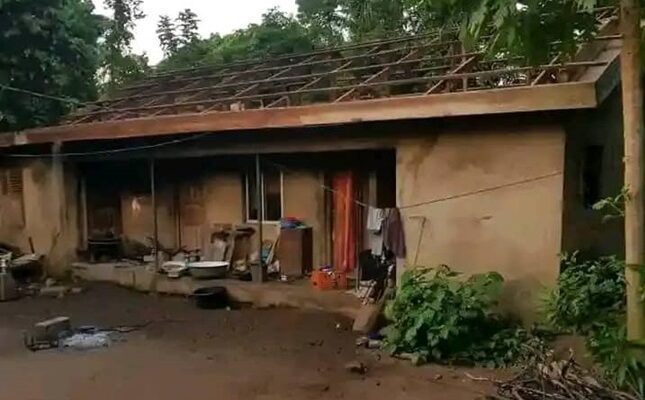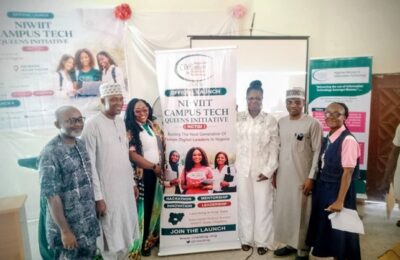The roof was not blown off by wind. It was removed—intentionally, violently, and symbolically—by human hands. In Delta State, a woman stood in horror as her late husband’s brothers pulled down the zinc roof over her head. Their reason? She no longer belonged to the family. Her crime? Her husband had died. Within two weeks of burying the man she had shared her life with, she was left with the sun and sky as her only ceiling.
Across Nigeria, widowhood often marks not only the loss of a husband but the beginning of hell on earth. In Nsukka, a widow named Ngozi shared how her in-laws told her: “You came with nothing. Leave with nothing.” They locked her out of her home with her three children and sold her husband’s farmland within days of the burial.
In Benue State, Terwase, a 29-year-old widow, was forced to walk out of her house after being accused of being responsible for her husband’s death. With no legal protection, she now squats with her aged mother in a one-room hut. Her belongings were looted, and her children pulled out of school due to the trauma and loss of stability. Her voice is one among many—silenced, buried, and overlooked.
These are not ancient stories from some forgotten past. They are present-day injustices wrapped in cultural excuses. In many communities—among the Igbo, Idoma, Urhobo, Tiv, and others—widows are subjected to dehumanizing rituals. Some are forced to sleep on bare floors, eat with unwashed hands, shave their heads, and drink the water used to bathe their husbands’ corpses—all to “prove innocence.”
Christian theology stands firmly against such cruelty. The Apostle James wrote: “Pure religion and undefiled before God and the Father is this: To visit the fatherless and widows in their affliction…” (James 1:27, KJV). Yet, in the same communities where this verse is preached, widows are thrown into the streets like waste.
Apostle Ayo Babalola, one of Nigeria’s foremost revivalists, once thundered, “Christianity that does not defend the helpless is an empty faith.” Bishop David Oyedepo also warned: “Any tradition that enslaves and humiliates must be confronted with truth and love.” Sadly, such confrontations are rare.
In her TED Talk and writings, Chimamanda Ngozi Adichie condemned these normalized abuses: “Culture does not make people. People make culture.” (Adichie, 2012: 9). That means culture is not sacred when it oppresses the sacredness of life.
In Kogi State, a woman named Ajifa was locked inside a room for one month after her husband’s death. She was denied visitors, proper food, and even light. By the time she was released, she could barely speak. Her in-laws had stripped her of dignity in the name of mourning. “I felt like a ghost in my own skin,” she said.
Academic studies support the horror stories. According to a 2023 report by Widowhood Rights Nigeria, 45% of widows in rural Nigeria experienced eviction or property seizure within six months of their husband’s death. Legal protections like the Violence Against Persons (Prohibition) Act (VAPP) of 2015 exist, but they have been domesticated in only a few states, and enforcement is lax.
As Professor Ifeoma Okoye once noted in a panel on African women’s rights, “A society that lets widows rot in grief while looters dance on their sorrow is a society at war with its soul.”
This is more than a gender issue. It’s a justice issue. A national shame. A stain on the conscience of a country that often boasts about religious piety while ignoring the cries of widows.
Even in the Old Testament, God declares through the prophet Isaiah: “Woe unto them that decree unrighteous decrees… to turn aside the needy from judgment, and to take away the right from the poor… that widows may be their prey” (Isaiah 10:1–2, KJV). How much louder must heaven cry before earth listens?
We must ask: what kind of people dismantle a roof over a mourning woman? What sort of family uses tradition as a weapon to wage war against a grieving mother? What sort of nation folds its arms while widows are tossed into the street like outcasts?
The call is urgent: reform tradition, enforce laws, educate communities, and defend widows. Let churches stop turning their backs. Let pastors speak from the pulpits. Let communities put roofs back over the heads they once tore off. Because when we abandon widows, we abandon humanity.
And every time we let a widow sleep under the open sky because of greed and cruelty, we invite judgment not just upon ourselves—but upon our entire nation. Who knows the root causes of our predicaments as a nation todays.
If you are led by the spirit of God to supports widows in Kogi State and Nigeria as whole, i recommend Revs Family Widows Fellowship, for further inquiries call me. Thank you
– Inah Boniface Ocholi writes from Ayah – Igalamela/Odolu LGA, Kogi state.
08152094428 (SMS Only)




